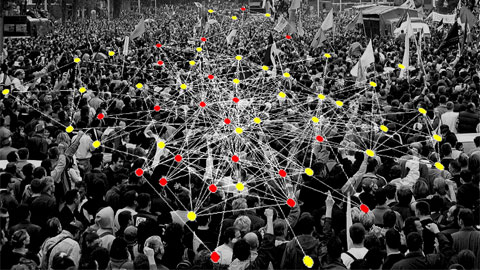UAB to host first European Conference on Social Networks
Over 300 researchers will meet from 1 to 4 July to study social and personal networks belonging to the fields of politics, the environment, criminology and health.

Over 300 researchers have signed up to participate in this first edition. With more than 350 papers, 17 workshops, exhibits on research projects in process, bibliographical novelties and debates, the EUSN will inaugurate a regional conference event which includes the scientific conferences which until now had been organised in different European countries. In this occasion the EUSN will play a special role in setting the stage for future regional conferences, such as the one prepared to be offered in Latin American.
This new European version is solidly based on its interdisciplinary character: the social networks of knowledge, applications in criminology, mixed analysis methods, the study of the elite, the environment, the algorithms of massive data extraction, social network platforms, political networks, entrepreneurs, social influences and health issues are some of the themes on which the studies and debates will be focusing on.
Ethics and Data Collection
One of the conference's most important sessions will take place on Thursday 3 July. The session will focus on the ethics of collecting data and its use for the research of social networks, in views of the current debate on data privacy faced by researchers - now more than ever - thanks to the innovations of the internet.
Another of the important sessions will include the intervention, on Tuesday 1 July, of Félix Requena Santos, director of CIS (Centre for Sociological Research), who will be presenting two classic literature volumes on social networks, recently translated into Spanish: Making Connections: An Introduction to Social Networks Concepts, Theories and Findings by Charles Kadushin and Social Network Analysis: Methods and Applications written by Stanley Wasserman and Katherine Faust.
At the presentation there will be a special table set up for researchers in social networks from Latin America, with the aim of consolidating the amount of research existing in this field.
Within the conference itself, a scientific collaboration network will conduct a study which will be presented on the evening of Thursday 3 July at the UAB Casa Convalescència in Barcelona (Carrer Sant Antoni Maria Claret, 171).
The conference has been organised by the egolab-GRAFO research group of the UAB Department of Social and Cultural Anthropology and coordinated by Professor José Luis Molina and Ramón y Cajal researcher Miranda J. Lubbers, with support of the Faculty of Philosophy and Arts, the Algorithmics Group from the University of Konstanz, Germany, and the Laboratory of Personal Networks and Communities (LRPC) of the University of Sevilla. Among other departments and institutes from the UAB that support the conference are the Centre for Sociological Studies of Daily Life and Work (QUIT-IEE) of the Department of Sociology, and the Institute of Environmental Science and Technology (ICTA).